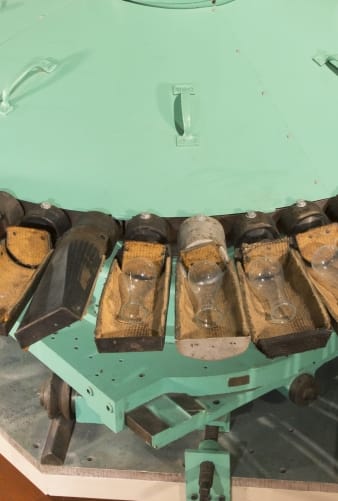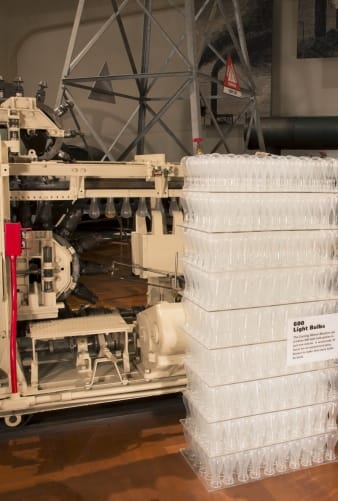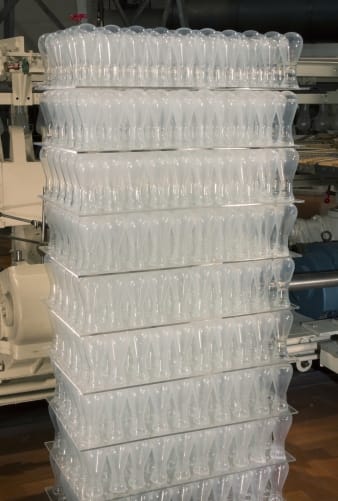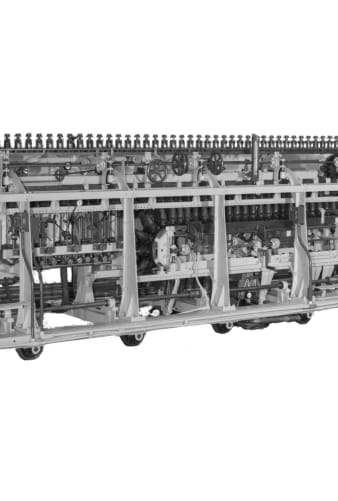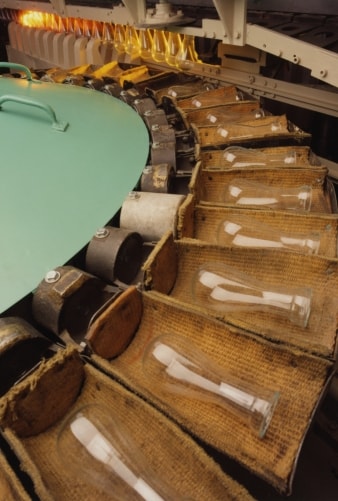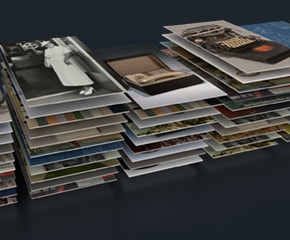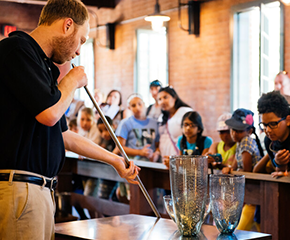

How Glass Got Modern
Artifacts from this Connect 3
Communal Drinking Vessel, 1790-1810
Artifact
Drinking vessel
Date Made
1790-1810
Place of Creation
Object ID
59.28.26
Credit
From the Collections of The Henry Ford.
On Exhibit
at Greenfield Village in Davidson-Gerson Gallery of Glass
Get more details in Digital Collections at:
Communal Drinking Vessel, 1790-1810
What is The Henry Ford?
The national attraction for discovering your ingenuity while exploring America’s spirit of innovation. There is always much to see and do at The Henry Ford.
Side Lever Glass Press, Used by Fostoria Glass Company, 1890-1920
Artifact
Glass-press
Date Made
1890-1920
Summary
As early as the 1820s, American glass manufacturers mass-produced pressed glassware to meet the demands of a rapidly growing population. Using presses to shape molten glass in intricately engraved molds, workers could churn out highly decorative -- yet affordable -- pieces that looked like expensive cut or etched glass. By the late 19th century most Americans owned a set of pressed glass tableware.
Object ID
82.86.1
Credit
From the Collections of The Henry Ford.
Get more details in Digital Collections at:
Side Lever Glass Press, Used by Fostoria Glass Company, 1890-1920
What is The Henry Ford?
The national attraction for discovering your ingenuity while exploring America’s spirit of innovation. There is always much to see and do at The Henry Ford.
Corning Glass Ribbon Machine, 1928
Artifact
Machine
Date Made
1928
Summary
Design as a discipline is rooted in craft but revealed in industry. Similarly the story of incandescent lamp manufacture begins with craft (the earliest ones offered for sale were exquisite hand-made objects) and ends with mass production. This high output machine (ten bulb blanks a second) was developed by a former glass blower and a mechanical engineer.
Creators
Place of Creation
Object ID
90.349.1
Credit
From the Collections of The Henry Ford.
Get more details in Digital Collections at:
Corning Glass Ribbon Machine, 1928
What is The Henry Ford?
The national attraction for discovering your ingenuity while exploring America’s spirit of innovation. There is always much to see and do at The Henry Ford.

















